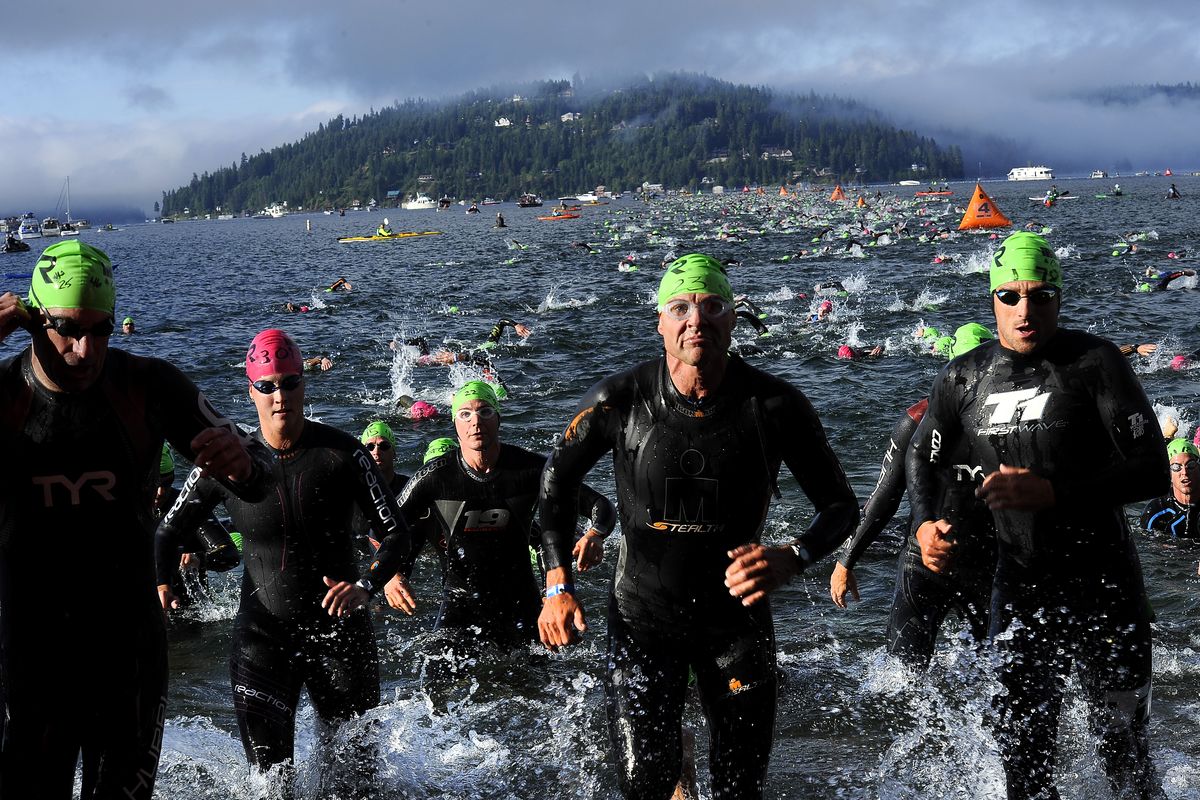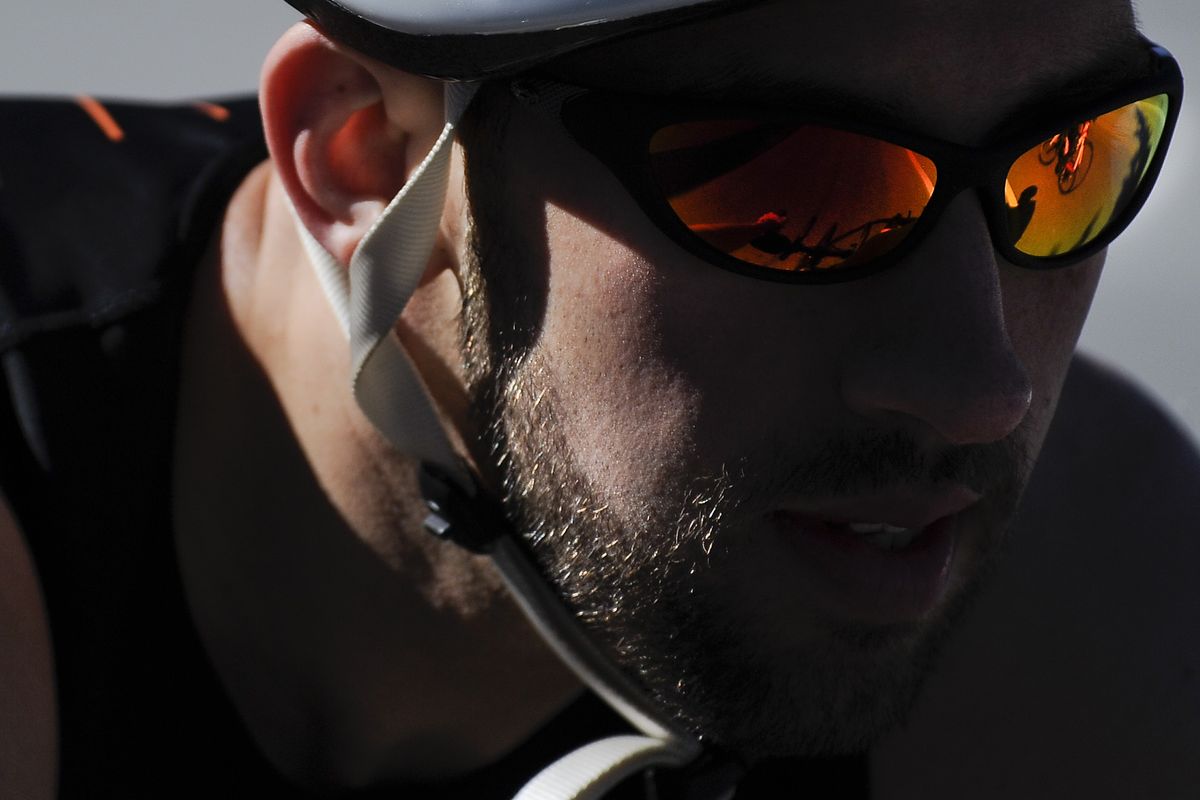Ironman Coeur d’Alene starts with safer swim, ends in records
Competitors emerge from the waters of Lake Coeur d’Alene after the 2.4-mile swim to begin Ironman Coeur d’Alene on Sunday. (Tyler Tjomsland)Buy a print of this photo
The mad dash into the lake that heralds the start of Ironman was replaced Sunday by an orderly march into the water.
In the Coeur d’Alene debut of a rolling start to the long-distance triathlon, athletes self-seeded on City Beach based on their expected swim times and strolled toward the start line, where their timing chips were activated. It’s the same procedure used for Bloomsday and most road races.
It doesn’t make for as dramatic a start, but it’s a safer and less stressful way to get 2,238 men and women into the water for the 2.4-mile Ironman swim, race officials say. In years past, the anxious throng would take the plunge at once, hands and feet pounding the surface and often smacking fellow competitors.
Scot Bates, of Southlake, Texas, said he appreciates the new Ironman SwimSmart Initiative, which also debuts at the Ironman in Lake Placid, N.Y., on July 28.
“Loved it. It was about 20 times safer than last year,” Bates said Sunday after emerging from the lake in one hour, 20 minutes.
His first Ironman was last year in Coeur d’Alene, and he remembers the cold, choppy water and mass start. “It was nuts,” he said.
But Jacob Gilden, of Arlington, Va., said he prefers the challenge of a mass start.
“I was really disappointed when they changed the swim,” Gilden said. “I won’t do another race where they don’t do a mass start, honestly. I think it’s a critical part of the race, and to get rid of it is really unfortunate.”
For him, managing the group start is one of the challenges of Ironman.
“I think it’s a skill that you learn how to swim with people around you and deal with those conditions as people have for 35 years since the sport started,” Gilden said. “That’s part of what makes this sport great.”
Susan Mara, of Monroe, Conn., who was cheering on her husband, Noel, and son Dominic in their first Ironman, said she had no problem with the new start procedure.
“We have to think of these guys who have put their heart and soul into these things for them to start safely,” Mara said.
The staggered start times, said Scott Bowe, of West Allis, Wis., made it more difficult to know if he truly was ahead of those around him.
“The principle behind it is really good, but I think it takes a little bit of the race aspect out of it,” said Bowe, 33, who finished second in his age bracket. “I’m more interested in testing myself against somebody else, because I know I can get through the race.”
Despite the mixed reviews of SwimSmart, everyone seemed to agree the weather Sunday was ideal – no wind, no rain, calm water at 62 degrees, mostly sunny skies and afternoon cooling that helped runners.
“This is about as good as it gets,” Bowe said. “It was a really fast day.”
Fast enough for many personal bests as well as course records set by the first-place male and female pros.
Olesya Prystayko, a professional athlete from Ukraine who finished eighth among the women, had one word for the weather: “Super,” she said, catching her breath at the finish line.
Sunburn was one concern, and volunteers helped slather sunscreen on the athletes at transition points. Among them was Allison Moceri, of Rathdrum, and five of her friends.
“We volunteered specifically for the sunscreen booth,” Moceri said between the swim and bike legs. “A bunch of women, kind of just for fun, we thought it would be a good time.”
The weather also brought out big crowds throughout the day. Meggan O’Mahony, of Colorado Springs, Colo., was rooting for her father, 65-year-old Rob Ladewig, in his 23rd Ironman since 2001.
“He’s really good at it and he loves doing it. And he’s grumpy if he doesn’t do it,” O’Mahony said. “Fitness and triathlons are his passion.”
Linda Sproull was helping her husband, Ed, in his second Ironman. The Bellevue software engineer lost his left leg in a motorcycle accident in 1981, and his wife held one of the prosthetic limbs he used in the race while he swam.
Later in the day, she noted that Ed finished the bike portion about 90 minutes faster than last year.
“He is doing unbelievably well,” she said. “He’s getting tired, he’s sore. But at this time of day everybody is.”

